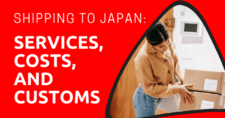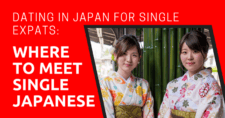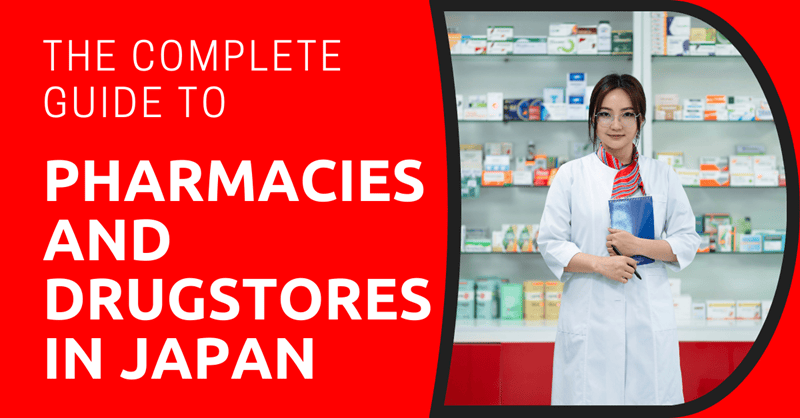
There are many drug stores in Japan that you might not recognize as drug stores due to the products they sell, ranging from cosmetic items to supplements.
In this article, I will give you a comprehensive overview of how you can obtain medicine while living in Japan. This includes how to claim your prescriptions, your over-the-counter (OTC) medication, popular pharmacies to visit, some cultural differences in medicine, and the legalities of bringing your own medicine from home.
I also want to discuss some non-Japan approved medicines that may be harder for foreigners to acquire while residing here.
This article will take approximately 13 minutes to read. Don't have the time right now? No worries. You can email the ad-free version of the article to yourself and read it later!
Disclaimer: This article may include links to products or services offered by ExpatDen’s partners, which give us commissions when you click on them. Although this may influence how they appear in the text, we only recommend solutions that we would use in your situation. Read more in our Advertising Disclosure.
Contents
- The Overview of Drugstores and Pharmacies in Japan
- Role of Drugstores in Providing Healthcare Support
- Buying Over-the-Counter (OTC) Medications in Japan
- My Personal OTC Medications
- Popular Drugstores and Pharmacies in Japan
- Filling a Prescription from Your Doctor
- Cost of Medicine in Japan
- Prescription Drugs are Difficult to Obtain in Japan
- Bringing Medicine from Home to Japan
- Differences in Japanese Medicine vs. Western Medicine
- Kanpōyaku
- Now, on to You
The Overview of Drugstores and Pharmacies in Japan
- Pharmacies in Japan come in many forms, such as drugstore chains or standalone drug stores. You will find that many are located near clinics and hospitals for patient convenience.
- Drugstores and pharmacies in Japan are carefully designed to cater not only to the preferences of local consumers but also to be easy to understand for foreign visitors.
- While it is unlikely that there will be English-speaking staff working at these stores, the aisles are clearly labeled, and most of the time they have English written underneath the Japanese descriptions.
- When you enter the store, promotional and seasonal items with special deals will be the first things you see, but stores are also known for their wide array of items.
- If needed, you can pick up food items like milk, drinks, or snacks, in addition to health supplements, beauty items, personal care products, and other everyday essentials.
Role of Drugstores in Providing Healthcare Support
During the business hours of any pharmacy, there will be a trained pharmacist and medical professional on duty. They are very helpful and can provide you with basic health support and make recommendations on what medicines you should take.
Often, new OTC products come out on the market, and they will help you select the best medicine for your symptoms. They are also knowledgeable about possible side effects and will assist you in determining the correct dosage amounts to ensure you consume the medication safely.
Buying Over-the-Counter (OTC) Medications in Japan
OTC medications for general ailments and illnesses are readily available at any pharmacy.
Other types of “medicines” and “health tonics” are sold at convenience stores, including next-day hangover cures, liver drinks to prevent hangovers from alcohol, energy supplement drinks, tonics for general well-being, etc.
OTC drugs are helpful for illnesses that you deem not serious enough to warrant a doctor’s visit.
I found this website extremely helpful in helping me find the appropriate medicine on several occasions. Once you visit a Japanese drug store/pharmacy, you will realize that the varieties of medicine are grouped together by symptoms.
My Personal OTC Medications
I have made a list of some of the more common ailments, and some popular OTC Japanese medicines that I have used in the past:
A. For cold medicines, there is a wide range of OTC choices; some medicines deal with a stuffed-up nose and runny nose specifically, while others alleviate pain and fever as well. Pabron Ace Pro is a popular choice, and it has been a go-to option for me when I have these symptoms.
B. For sore throats and irritation, Ryukakusan throat lozenges are by far the most popular choice. They are often bought in bulk by tourists and have many positive reviews. Also, for cough relief, Paralon Cold EX Gold (which includes cold and flu options) is a widely used product.
C. Bufferin Premium is often recommended as a painkiller and for fever reduction. You will find that OTC painkillers in Japan are standard strength, but differ slightly in results depending on symptoms. Here is a list of painkillers that you can buy with ease almost anywhere in the country.
D. For gastrointestinal discomfort and stomach pains, there are many medications designed to relieve indigestion, heartburn, and bloating. Sucrate Ichiyaku S is one OTC choice. As I will explain a bit later, natural Kanpo Igaku (Chinese medicine) solutions are also used in Japan for these kinds of ailments.
E. Designed to relieve eye strain, dryness, and irritation, eyedrops are often necessary in Japan, particularly in the colder months where people run the air conditioner (heater) for many hours a day. Japan has a surprisingly wide selection of both mentholated and regular eyedrops for customers of all ages.
Popular Drugstores and Pharmacies in Japan
As of 2024, there are over 22,000 drugstores and pharmacies spread across Japan, with many of these stores being nationwide branches.
I will introduce a few of the more popular pharmacy chains in Japan and give a brief description of their layout, so you can imagine what your shopping experience might be like.
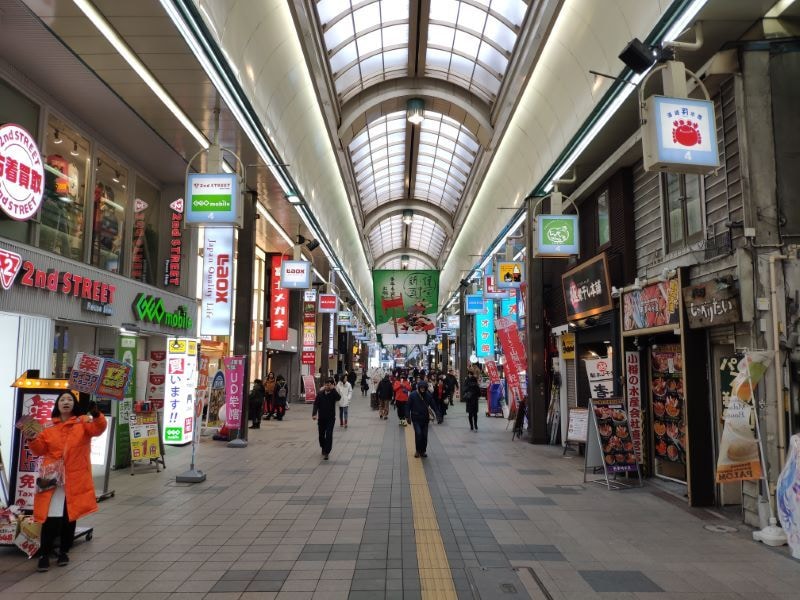
Please note that these drugstores may not have pharmacists on-site all the time. This means you might not be able to get prescribed medicine here.
Daikoku Drug
Daikoku Drug is located throughout Japan, from Hokkaido to Okinawa, with a significant presence in the Kansai region, particularly in Osaka. It is also a tax-free shop, meaning that if you can prove you are only traveling in Japan, you do not have to pay the 10% consumption tax.
Sugi Yakkyoku
Sugi Yakkyoku is an extremely successful, long-standing drugstore chain connected to the Sugi Pharmacy Company. They offer everything from prescriptions to health and beauty aids and incorporate electronic prescription services to speed up processes for their customers.
Welcia
Welcia is another leading nationwide drugstore chain that extends from Hokkaido to the Kansai region. Welcia offers online shopping with in-store pickup, which is convenient.
Filling a Prescription from Your Doctor
The process of getting a prescription in Japan works much like in the US.
After you get a prescription from seeing a doctor at a hospital or a clinic, you can then fill it at a pharmacy of your choice.
Some hospitals and clinics have a very small separate building where a pharmacist works, usually attached to that hospital or clinic.
Despite this, you are free to go to any pharmacy to fill your prescription.
The doctor who gives you the prescription will ALWAYS tell you where you can buy the medicine as well.
Once you receive your prescription from your doctor, you can then take it to a pharmacy to have it filled.
Although the doctor should briefly instruct you verbally about dosages and instructions for the ingestion of the medicine, the pharmacist will also go over it with you one more time.
The instructions will also be clearly written on the prescription medicine package when you receive it.
If you do have more than one medicine, make sure to keep them in the correct bags so they do not get mixed up.
Please remember to always bring your health insurance card (Kenkō Hokenshō) when visiting a clinic or hospital, and also have your identification ready to show the pharmacist when you fill your prescription.
This card is essential for billing and insurance purposes since you will pay only 10%-30% of the cost of prescriptions if you have public insurance.
An important point to note is that the prescription you receive from a doctor is only valid for 4 days. If you don’t fill it in time, you will need to see a doctor again.
Cost of Medicine in Japan
The cost of medicine in Japan varies depending on the type of medication, but generally, medicines in Japan are affordable.
For example, a pack of Bufferin can cost around 500-800 yen, and a bottle of the cold medicine Pabron ranges from 800 to 2,000 yen.
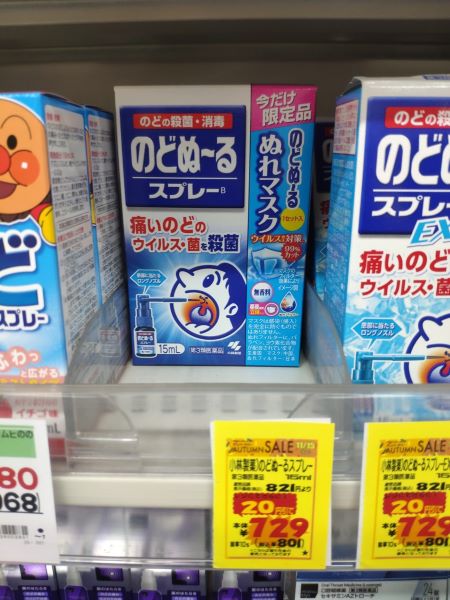
The cost of medication in Japan is regulated by the government to keep healthcare affordable.
However, while your public health insurance system pays for 70% to 90% of your prescription drug costs, your OTC medications are out of pocket.
Do not worry; they are not too expensive.
Prescription Drugs are Difficult to Obtain in Japan
Some commonly controlled medications that might be difficult for foreigners to obtain include:
Opioid Painkillers like oxycodone, hydrocodone, and codeine are tightly regulated due to their potential for abuse and addiction.
Medications used to treat attention deficit hyperactivity disorder (ADHD), like Adderall and Ritalin; Benzodiazepines like Xanax and Valium; and Psychotropic Medications such as antidepressants, antipsychotics, and mood stabilizers.
I have provided a list here. If you are taking these prescription drugs, you may need to either find natural alternatives or complete the necessary legal paperwork to bring your long-term supply from home by special permission.
Bringing Medicine from Home to Japan
If you’re planning to bring a large quantity of medicine from your home country to Japan, it is very possible, but Japanese regulations are strict, and the application process can be a bit tedious.
Before bringing or sending prescription medicine to Japan from abroad, these preliminary conditions must be met:
- it must be for personal use
- it is not considered a “controlled drug” in Japan
- it is limited in quantity to a one-month supply
To bring more than a one-month supply, you must apply for an import certificate called the “Yunyu Kakunin-sho” (Importation Certificate) and a “Yakkan Shoumei” (Pharmaceutical Inspection Certificate) prior to leaving your home country.
Step five from this link will lead you to the new online application procedure. However, the application for a “Yunyu Kakunin-sho” can also be submitted by email, fax, or post.
This official link will provide you with the form and give you more detailed information if you happen to need injectable medicine from home; different rules do apply to the import of injections and injectors.
The required documents you will need to apply for the “Yunyu Kakunin-sho” are: an explanation of the product, an official copy of the prescription from your doctor, and a form indicating when and where you are arriving.
After your application is complete and processed, and you receive your “Yunyu Kakunin-sho,” it must be presented to customs upon arrival in Japan.
Keep in mind, the processing time for applications is typically a few business days, and it can be rejected due to incomplete documents.
When sending more than a one-month supply of prescription medicine to Japan, a different process applies. You first need to follow instructions from your chosen courier company.
I have linked instructions for the Yakkan Shoumei (Pharmaceutical Inspection Certificate), which contains a list of emails where it must be sent. You may also have to fill out the Yunyu Kakunin-sho (Importation Certificate) as well, but that will be determined by the official inspector.
Differences in Japanese Medicine vs. Western Medicine
There are many cultural and regulatory differences between Japanese and Western medicine. In Japan, many medicines commonly available OTC in the West actually require a prescription.
These can include some types of inhalers; allergy medicines and sinus medications, which are illegal in Japan.
For reference, I have included this official list from the Japanese embassy.
Many expats are often inconvenienced to find that common medicines like Tylenol Cold, Nyquil, Sudafed, Advil Cold & Sinus, and Vicks Inhalers are not available.
Additionally, Japanese OTC medicines also tend to be weaker in strength compared to their Western counterparts; stronger medicines are classified as prescription drugs and thus require a doctor’s prescription.
Kanpōyaku
What surprises many expats the most is the reliance on Kanpō, or Chinese medicine, incorporated by the Japanese.
Kanpōyaku (Chinese herbal medicine) has been integrated into the modern healthcare system of Japan. Kanpō has been adapted over centuries to fit Japanese culture and is now widely used in Japan.
While Kanpō remedies are prescribed by doctors, they can be easily purchased OTC in most pharmacies.
I will not get too deep into the exact contents of each remedy, but they are all natural and are a combination of various herbs, minerals, and animal products.
The ingredients are carefully mixed to create therapeutic and healing effects.
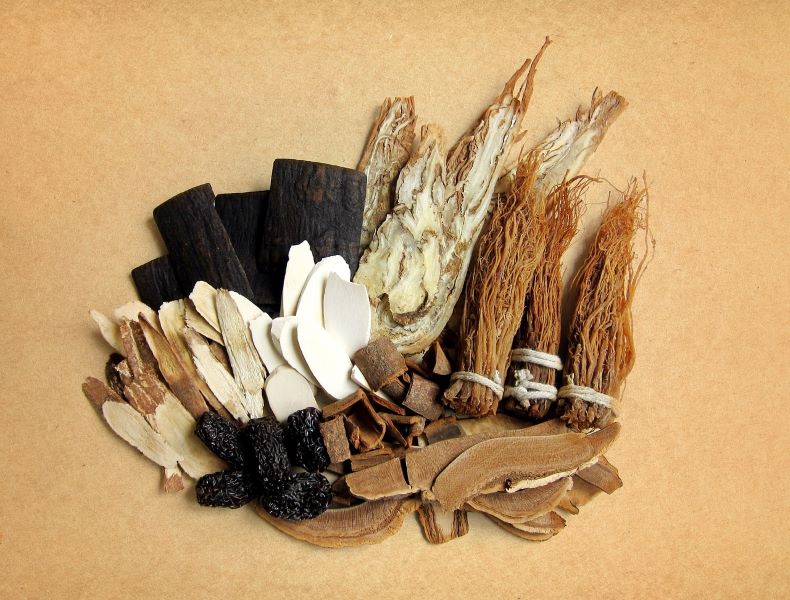
Common ingredients used in Kanpō medicines are ginger, licorice root, cinnamon, peony root, and ginseng.
Some of the most well-known Kanpō formulas include:
Sho-saiko-to (main ingredients: bupleurum root, jujube fruit, ginseng root, licorice root) for liver function and hepatitis treatment.
Maoto (main ingredients: cinnamon bark, apricot kernel, ephedra herbs) used for flu-like symptoms such as fever, chills, and body aches.
Kakkon-to (main ingredients: ephedra herb, peony root, ginger root, jujube fruit, licorice root) for the early stages of colds.
Ninjin-yoei-to (main ingredients: ginseng, citrus peel, Japanese angelica root, poria sclerotium, astragalus root) for an energy boost and fatigue.
Rikkunshito (main ingredients: ginseng, atractylodes, poria, pinellia tuber, amomum fruit, jujube fruit, licorice root) to treat gastrointestinal issues such as loss of appetite, indigestion, and nausea.
Goshuyuto (main ingredients: Alisma, dioscorea root, cornus fruit, moutan bark, aconite root, rehmannia root) for headaches and migraines.
Here is a more complete index if you are interested in this unique approach to holistic healthcare.
Now, on to You
In conclusion, I hope this information provides some valuable insights into medicine in Japan.
Remember to stay informed about any changes in regulations or procedures, as these are always subject to change. Good luck with your life in Japan, and I wish you health.



